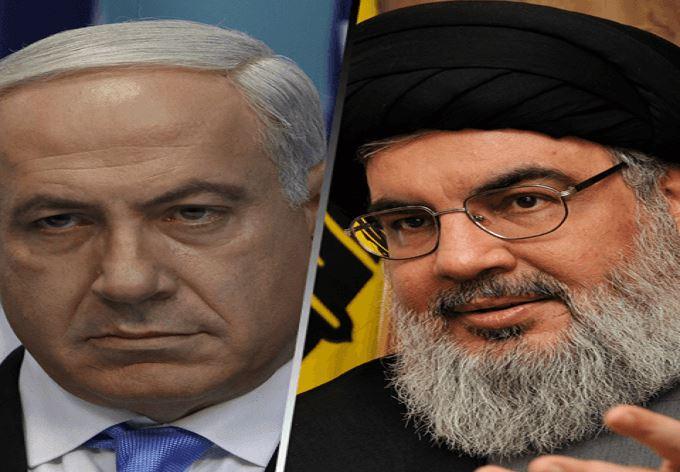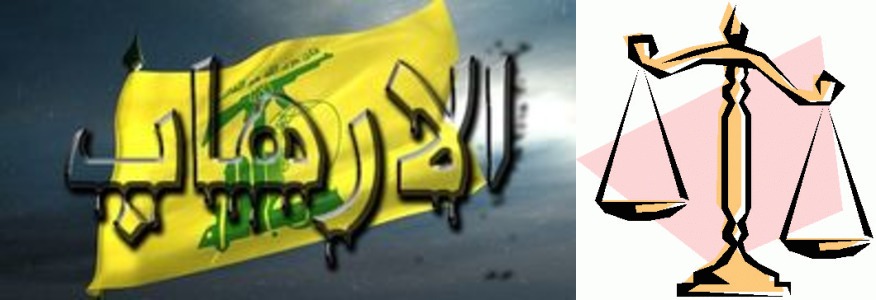Analysis/Netanyahu and Nasrallah — the Middle East’s Longest and Most Stable Enmity
انشيل فايفر/هآرتس: العداوة بين نصرالله ونيتنياهو هي الأطول في الشرق الأوسط بهدوئها والاستقرار
Anshel Pfeffer/Haaretz/August 28/2019
Both leaders have avoided turning their belligerent bluster into wider confrontations, being experienced enough to know the limitations of military power.
Benjamin Netanyahu’s suggestion to Hassan Nasrallah on Monday that he “calm down” with his threats was a rare acknowledgment of an old enemy. The prime minister doesn’t regularly speak of the Hezbollah leader in public, and there are a number of reasons for this. Netanyahu doesn’t like referring to anyone who doesn’t share his state-leader status, but in Nasrallah’s case it’s even more intentional: He wants to portray Hezbollah as merely an Iranian proxy, not as an entity in its own right. In addition, Netanyahu — aware as he is of media imagery — knows that Nasrallah is both one of the most recognizable Arab leaders, especially among Israelis, and that he’s respected and feared as well. So why bring him up?
At the same time, however, there is no other enemy Netanyahu has spent so much time reading intelligence briefings on and discussing his intentions in closed security meetings.
Nasrallah is a decade younger than Netanyahu, but he’s a more experienced leader. When Netanyahu first became prime minister in 1996, Nasrallah had already headed Hezbollah for four years. Twenty-three years on, all the enemies and rivals Bibi faced in the Arab world have gone — except for Nasrallah, who hasn’t moved. (Though not himself an Arab, you can also add Nasrallah’s main patron, Ali Khamenei, Iran’s supreme leader since 1989, to that short list.)
The Netanyahu-Nasrallah enmity is the oldest in the region. And not only is it remarkably stable, it has also been relatively peaceful. In the 27 years since Nasrallah assumed control of Hezbollah, following the Israeli assassination of his predecessor, Abbas Musawi, there have been seven Israeli prime ministers. Netanyahu, by far the longest serving, has been leader for nearly half of that period, and none of the major conflagrations with Hezbollah have been on his watch.
Operation Accountability, when Israel bombarded southern Lebanon for a week in 1993, trying to stop Hezbollah rocket launches, took place under Yitzhak Rabin. The longer and more ferocious Operation Grapes of Wrath was directed by Shimon Peres in 1996. And then of course there was the Second Lebanon War, into which both Nasrallah and Ehud Olmert allowed themselves to be dragged in 2006.
During the three years of Netanyahu’s first term, the cease-fire achieved after Grapes of Wrath was largely adhered to: Clashes between the Israel Defense Forces and Hezbollah in the “security zone” of southern Lebanon continued, but attacks on civilian targets in northern Israel ceased.
The same can be said for the past decade after Netanyahu returned to power. The cease-fire that ended the Second Lebanon War has been kept. Israel and Hezbollah have fought on Syrian soil but not in Lebanon. At least, until the explosions in Beirut on Saturday night that Hezbollah accused Israel of carrying out.
Not only have Nasrallah and Netanyahu been good at keeping the peace together, but the wars in Lebanon have arguably helped both their careers.
Despite the destruction wreaked by Israel during the confrontations, for a long time in the Arab world Nasrallah enjoyed the image of being leader of the resistance to Israel — until he became synonymous with the mass killings of Syrian civilians alongside the Assad regime. He was the man whose fighters “forced” Israel out of southern Lebanon in 2000 and fought the IDF to a humiliating stalemate in 2006.
Anger among Arab Israelis at the deaths of Lebanese civilians in Qana during Operation Grapes of Wrath was one of the reasons their turnout was low in the following month’s election, helping Netanyahu beat Peres by a sliver.




















